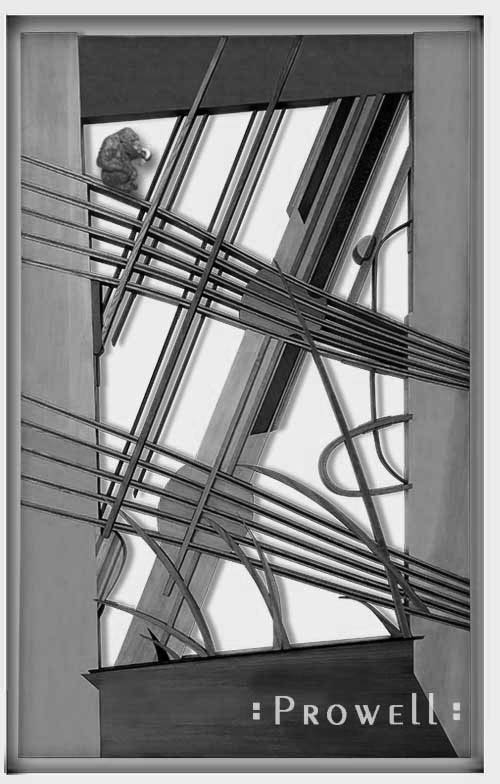The unusual Wood Gate 213 is an exercise in musicality, and probably more about form than function. An endless procession of intersecting, hand-cut joints.
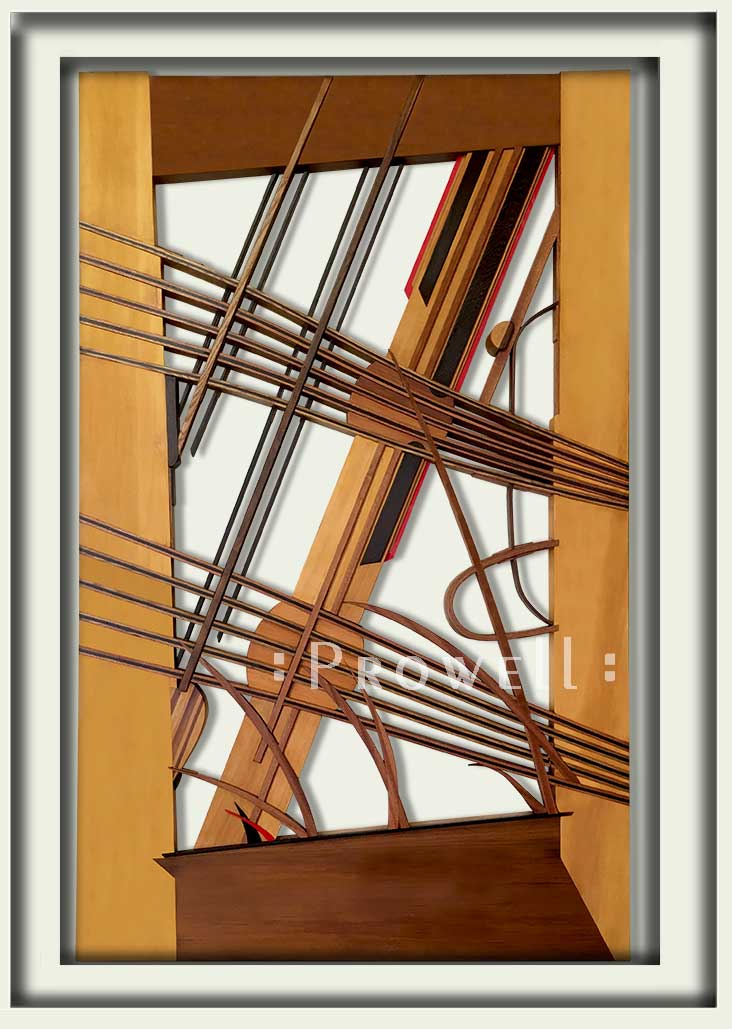
CUSTOM GARDEN GATE 213
So much going on here. Interlocking splines criss-crossing one another like reeds in a swamp.
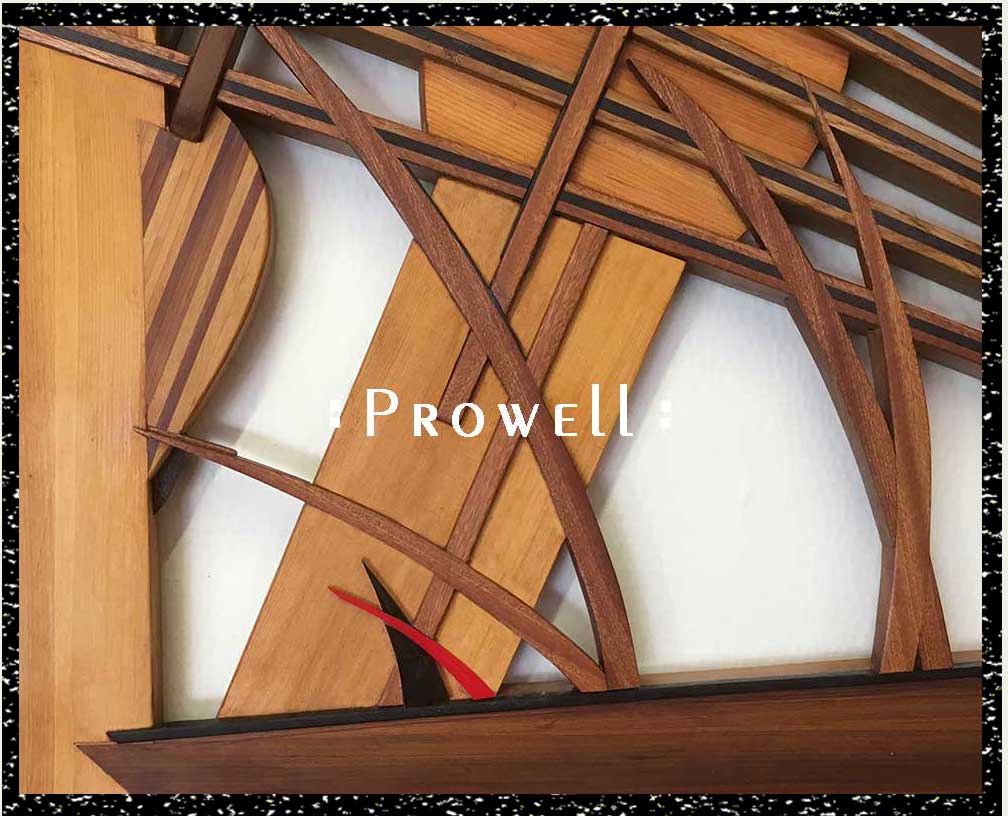
WOODEN GATE 213
And here and there a splash of red acrylic.
Cedar, Mahogany, wenge, and acrylic, all combining toward a harpsichord from outer space.
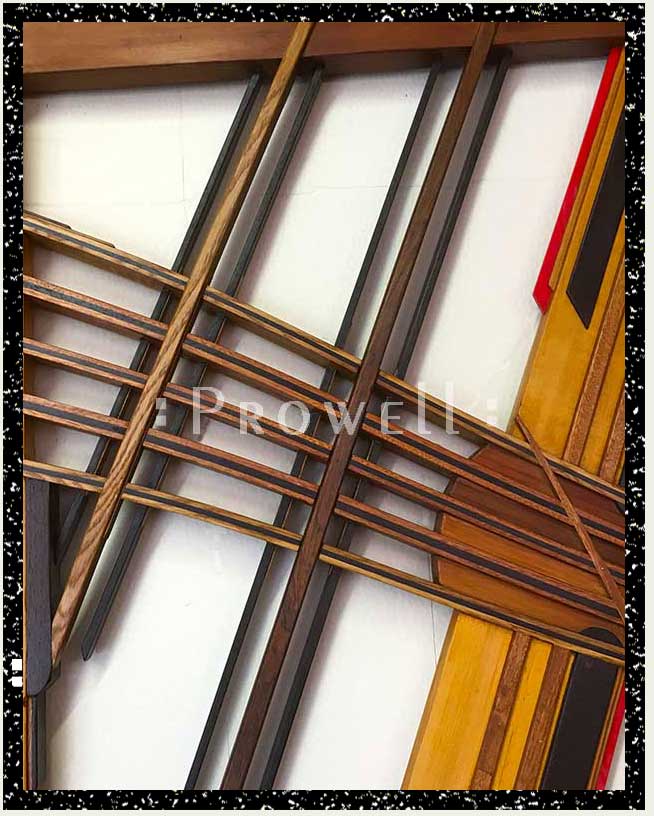
OUTDOOR GATE 213
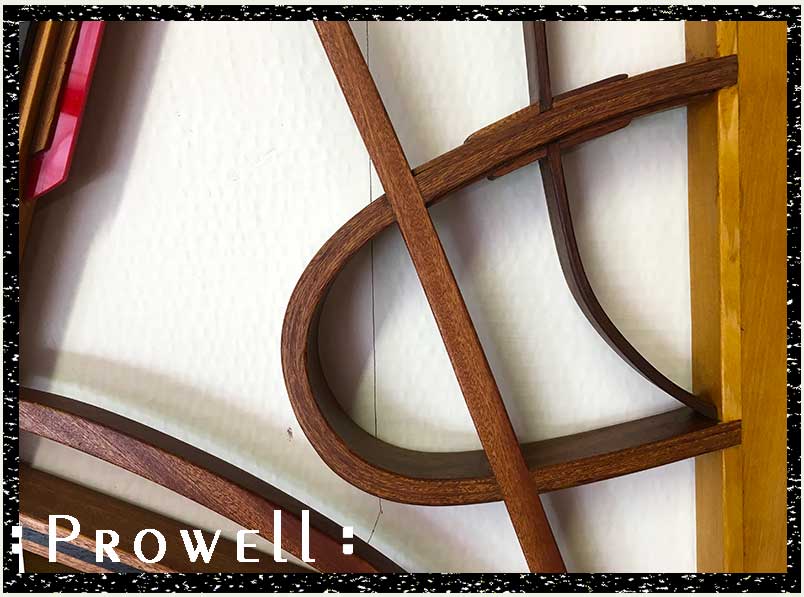
WOOD GATES 213
Artistic renderings of string instruments is not new. To see more, click here
But as a garden gate? Perhaps, if you’re an orchestral musician.
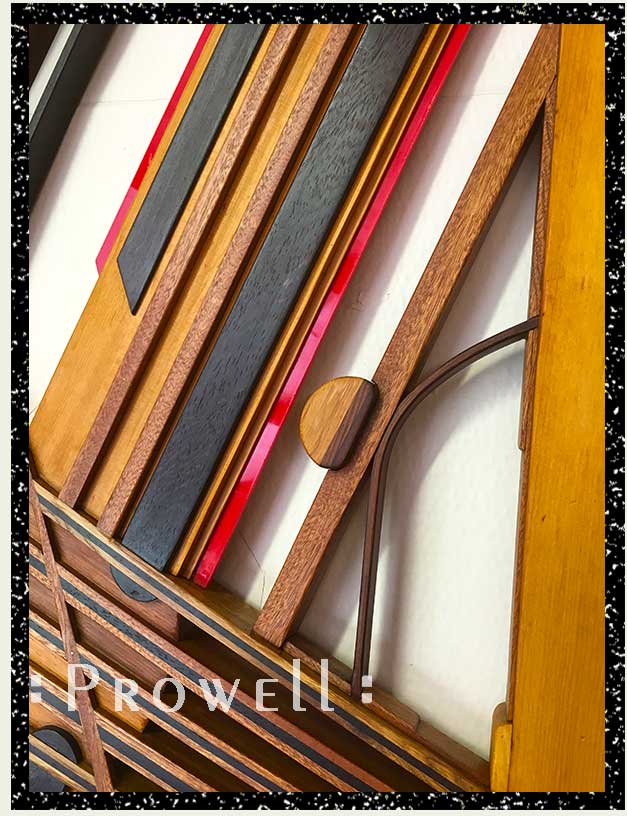
![]()
In-Progress
BUILDING THE WOOD GATE 213–PROGRESS
The Wooden Gate 213 begins with tapered stiles and rails and the convoluted joinery of the bottom rail.
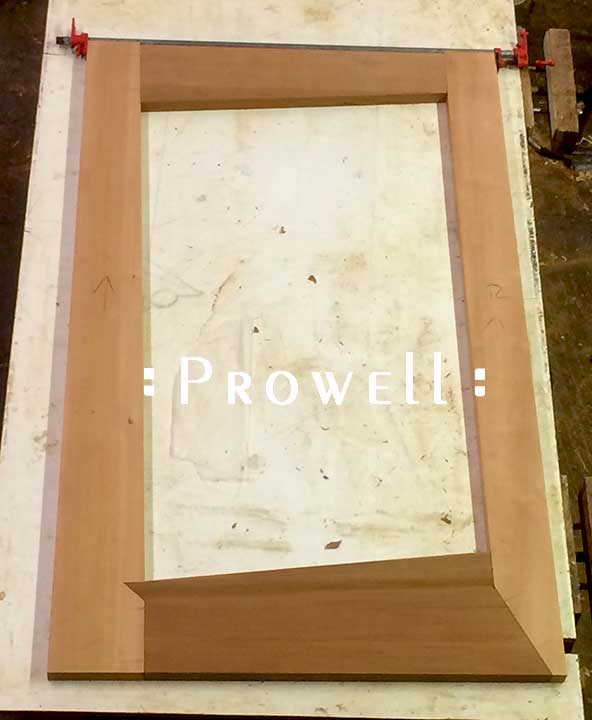
213–PROGRESS
Adding a series of gang laminations clamped to a mold with a slight cresting radius. Two sets, each with a slightly different profile.
Each lamination is a group of three. All of them with a center strip in the dark wenge, sandwiched in either white oak or sepele. The Wood Gate 213 employs, in all, 6 species of wood.
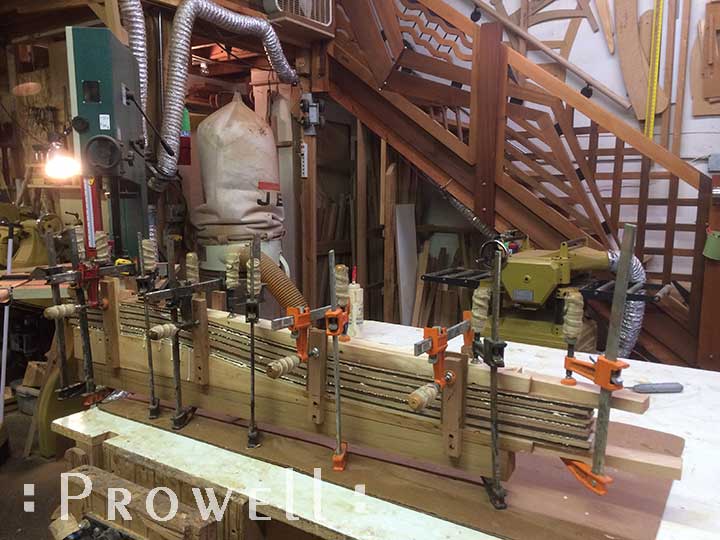
213–PROGRESS
To continue the tapering theme, the laminations are arranged to accentuate their slight profiles and funneling to a narrow point on the right. Simulating the strings of cellos, harps, and violins.
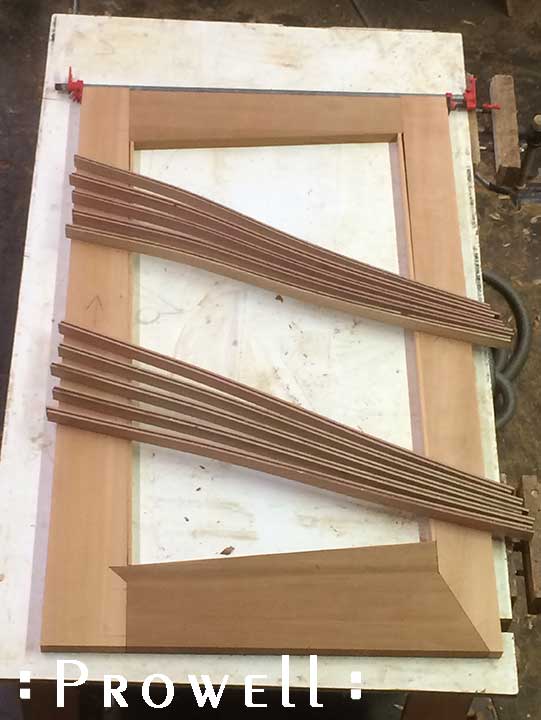
213–PROGRESS
Each set of strings on our abstract gate design is cut by hand and on the bandsaw to fit within its pocket, while extending to traverse the stiles.
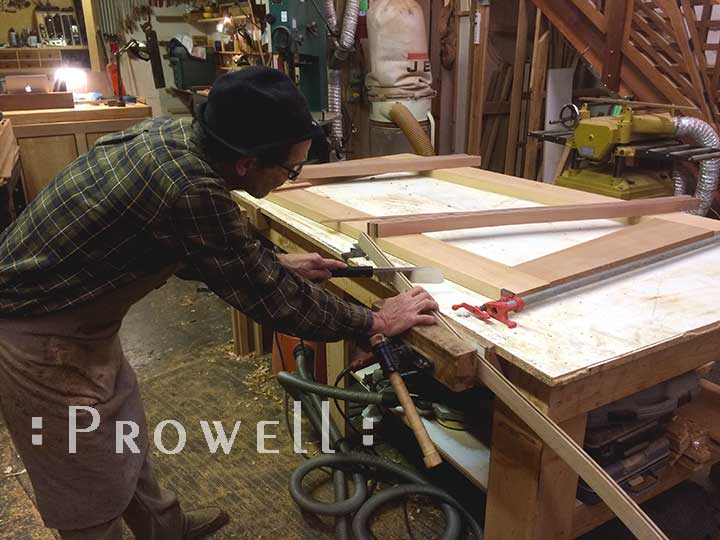
213–PROGRESS
A typical fit.
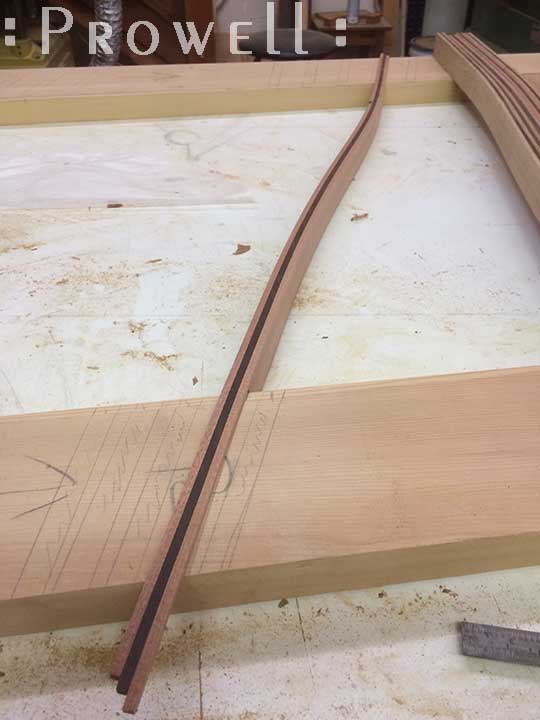
213–PROGRESS
With a rough-fitted result that establishes our focal anchor of what’s to come with the ensuing aspects of gate design 213.
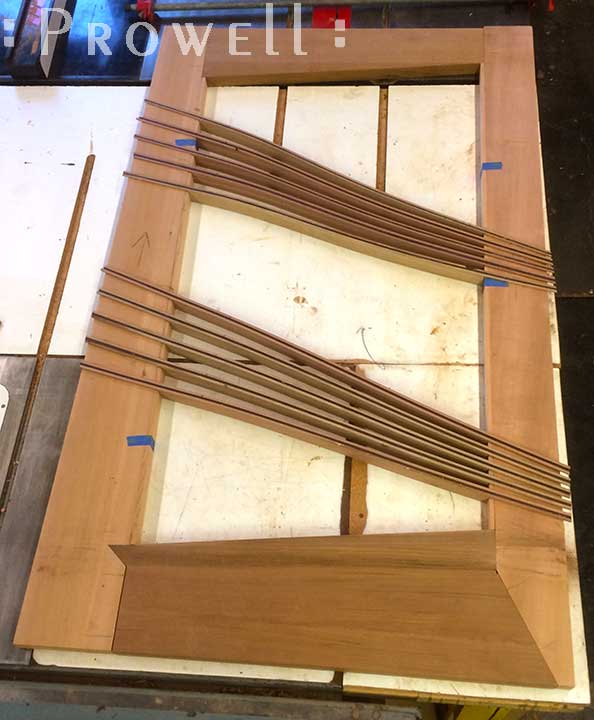
213–PROGRESS
The spline, traversing diagonally across our wood gate, with a number of planes and reliefs anchored by the introduction of primary-red acrylic.
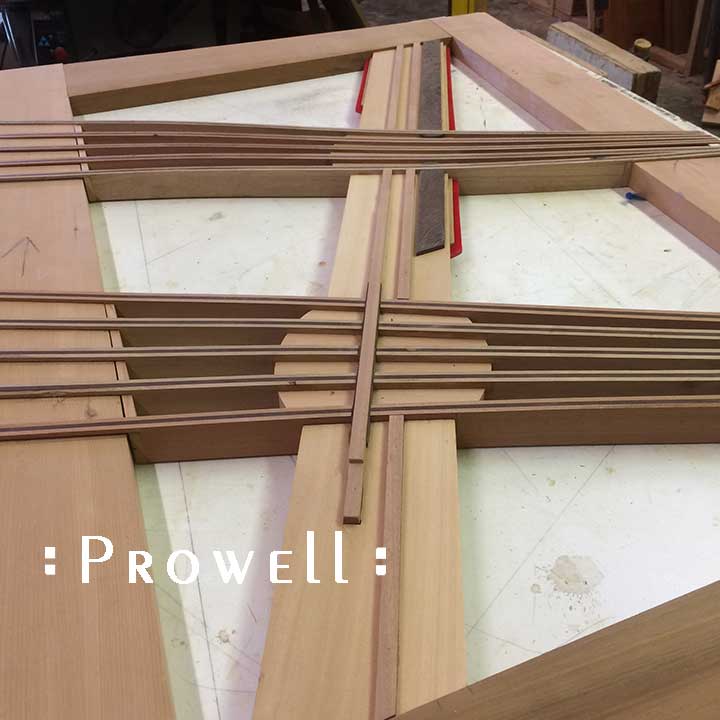
213–PROGRESS
A series of what might be construed as reeds in a marsh, flaring up lazily from the bottom rail. Cut on a band saw and then trued by hand with a beveled spokeshave (see insert).
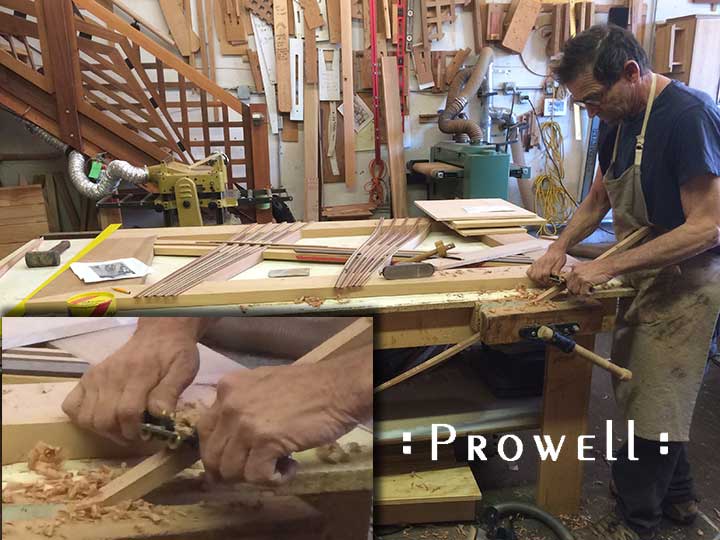
213–PROGRESS
The approach hasn’t changed: Make up a series of pieces and set them out as if playing with Legos, looking for the right piece in the right spot.
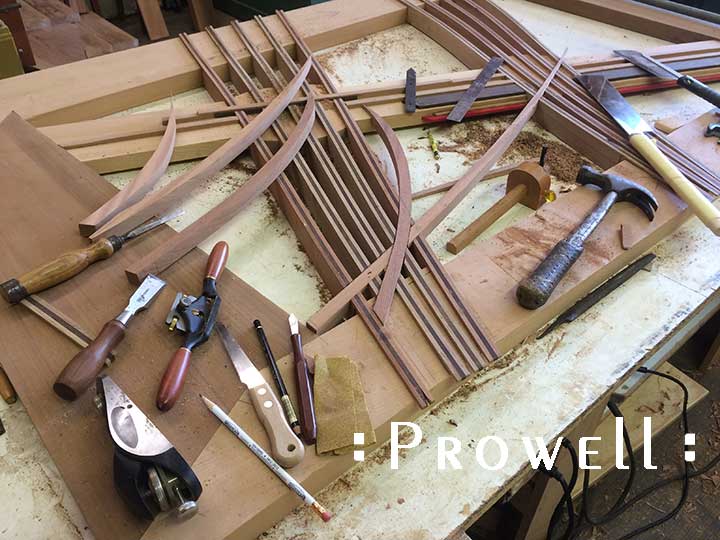
213–PROGRESS
At this stage of the gate design, we have a traffic jam of hand tools scattered everywhere. Each reed takes about 4 hours to fit into place like a puzzle.
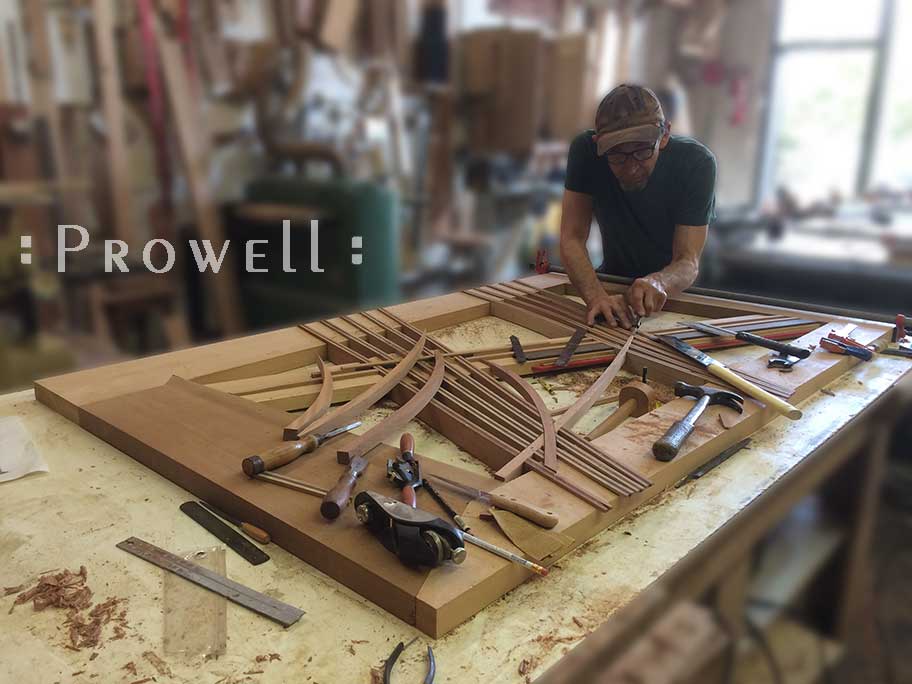
213–PROGRESS
The business portion of the gate shown as a stand-alone assembly. Everything joined and glued up, enabling everything so far to be set to the stiles and rails. The remaining details can be joined as we go, knowing that everything so far will not be shifted or nudged from its final poisition.
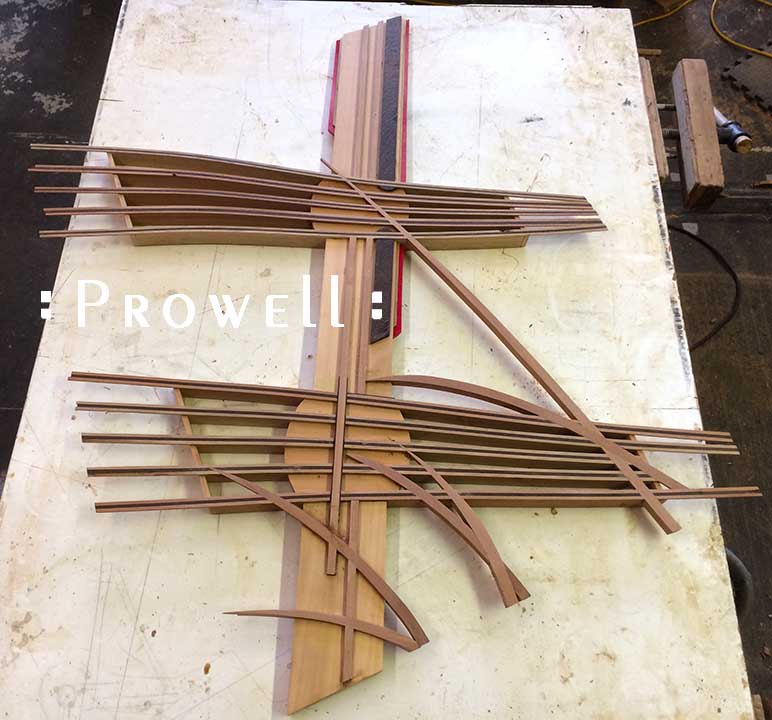
![]() The fundamentals. Painters, sculptors, writers, any endeavor that requires a complete understanding of the fundamentals, the craft, before the first thought of ever achieving perfection can be mildly entertained. Learning that craft is nothing if not an endless repetitive exercise in errors. The curiosity to plunge further, deeper, buoyed toward mastering a full toolbox of techniques and skillsets and finally one day the artist’s world is full of possibilities. A world lead more by instinct and intuition than calculated planning. A world closer to musical tonality than mental alacrity. The possibilities entertained of striving for excellence, if not perfection.
The fundamentals. Painters, sculptors, writers, any endeavor that requires a complete understanding of the fundamentals, the craft, before the first thought of ever achieving perfection can be mildly entertained. Learning that craft is nothing if not an endless repetitive exercise in errors. The curiosity to plunge further, deeper, buoyed toward mastering a full toolbox of techniques and skillsets and finally one day the artist’s world is full of possibilities. A world lead more by instinct and intuition than calculated planning. A world closer to musical tonality than mental alacrity. The possibilities entertained of striving for excellence, if not perfection.

